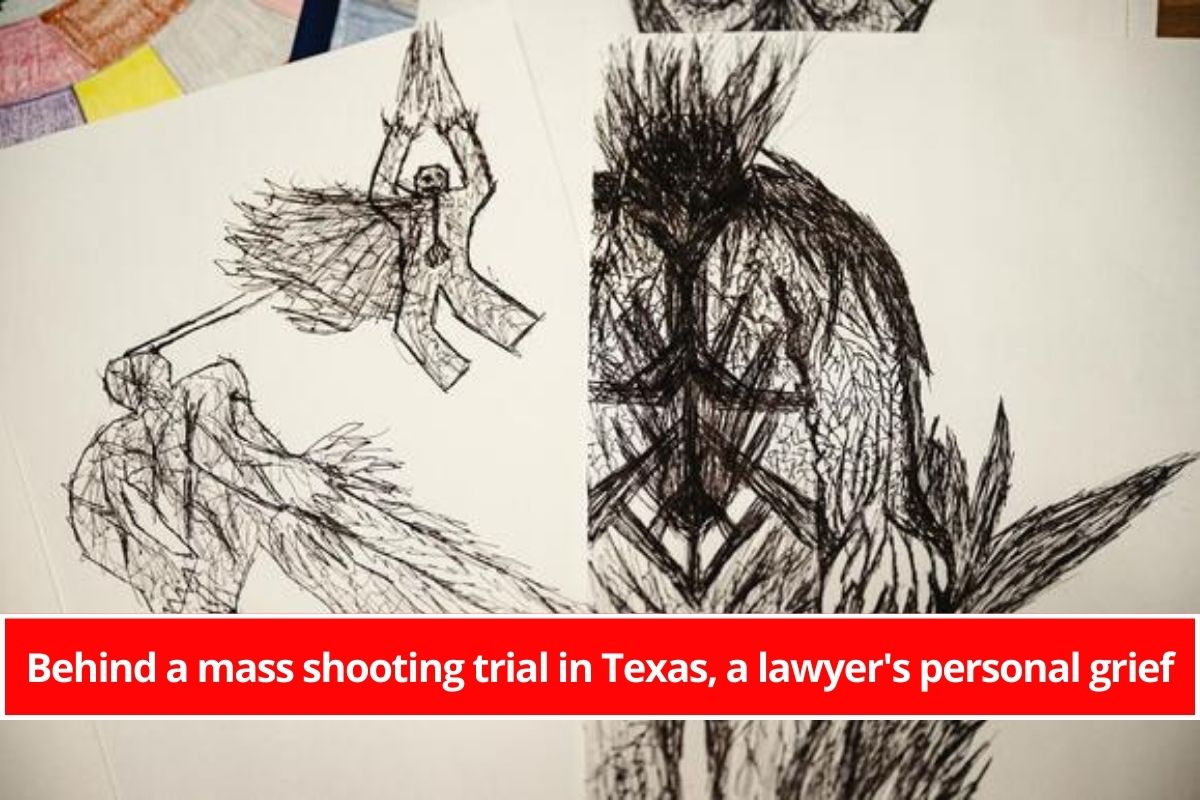In a case that captured national attention, a Texas jury was tasked with deciding whether the parents of the Santa Fe High School shooter should be held liable for the actions of their son, Dimitrios Pagourtzis. The trial, which lasted several weeks in Pasadena, Texas, marked one of the first civil lawsuits against the parents of a school shooter.
The plaintiffs—victims’ families and survivors—argued that the shooter’s parents, Antonios Pagourtzis and Rose Marie Kosmetatos, should have recognized warning signs of their son’s mental illness and violent tendencies. They also claimed the parents were negligent in securing the firearms used in the attack.
On the defense side was Lori Laird, a Houston-area lawyer who took on the case despite its controversial nature. What no one knew at the time was that Laird had a deeply personal connection to the issue: her own stepson, Jonathan, had been battling schizophrenia, and just months before the trial, he had taken his life using a 3D-printed firearm.
A Tragic Parallel: The Lawyer’s Personal Connection
Laird, a former police officer turned attorney, understood mental illness firsthand. Her stepson, Jonathan, had struggled for years with schizophrenia, experiencing hallucinations and paranoia. He was even hospitalized multiple times.
Despite efforts to monitor his behavior and seek medical help, Jonathan secretly printed a homemade gun using his 3D printer. One day, his father found him dead in his room, surrounded by drawings of the demons he believed were haunting him.
Laird saw haunting similarities between her own family’s struggle and that of her clients. Like Pagourtzis’ parents, she had missed warning signs. Like them, she had a son who hid dark secrets in his bedroom. And like them, she had no idea how far his illness would take him.
Key Arguments in the Trial
The Plaintiffs’ Case: The Parents Should Have Known
Lawyers for the victims’ families argued that Dimitrios Pagourtzis’ parents were negligent, citing:
- Access to guns: The shooter used his parents’ legally owned shotgun and handgun, which should have been locked up.
- Warning signs: He had shown disturbing behavior, including an obsession with mass shooters.
- Online purchases: He ordered materials linked to his attack, including zip ties, bear spray, and ammunition.
Plaintiffs pointed to other cases, such as the Oxford High School shooter’s parents, who were criminally charged for not preventing their son’s attack. While no criminal charges were filed against Pagourtzis’ parents, this case tested whether parents of school shooters could be held responsible in civil court.
The Defense: Parents Can’t Predict Tragedy
Laird’s strategy centered on proving that parents cannot always predict or prevent their child’s actions, even if mental illness is present. Her key arguments included:
- Guns were locked up – The father, Antonios Pagourtzis, testified that all weapons were secured.
- No history of violence – Dimitrios had no prior diagnosis of mental illness before the shooting.
- Parents are not mind readers – Laird used her own experience with her stepson’s hidden struggles to argue that not all warning signs are obvious.
A Shocking Moment in Court
During closing arguments, Laird made a bold move—she revealed her personal tragedy to the jury.
“That could be me sitting right there. My son died five months ago. He had schizophrenia.”
The courtroom fell silent. The plaintiffs’ lawyers objected immediately, arguing that her personal loss had no place in the case. A victim’s parent stormed out of the courtroom in frustration. The judge ruled that Laird could not mention her son again, but the impact of her statement lingered.
The Verdict: A Landmark Decision
After hours of deliberation, the jury returned with a verdict.
While the specifics of their decision are yet to be publicly revealed, the case has set a legal precedent for future lawsuits against the parents of mass shooters.
If the jury found the parents liable, it could open the door for similar lawsuits across the country, potentially holding parents accountable for failing to prevent mass shootings.
If the jury cleared them of liability, it would reinforce the argument that parents cannot always control their child’s actions, especially when mental illness is a factor.
Regardless of the verdict, this case raises difficult legal and ethical questions:
- Should parents be held responsible for their child’s crimes?
- How much control can a parent realistically have over a mentally ill teenager?
- Will this case set a precedent for future lawsuits against parents?
For Lori Laird, the case was more than just a legal battle—it was a reflection of her own loss. Whether her clients won or lost, one thing was clear: the pain of school shootings extends far beyond the victims, impacting families on all sides.
As the debate over gun violence, mental health, and parental responsibility continues, this case serves as a reminder of the devastating impact of mass shootings—and the difficult choices families and courts must make in their aftermath.







